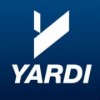SQL Database Administrator
60+ SQL Database Administrator Interview Questions and Answers

Asked in TCS

Q. What is a database management System and what is concept of primary key and foreign key?
A database management system (DBMS) is a software that manages and organizes databases. Primary key uniquely identifies a record, while foreign key establishes a relationship between tables.
A DBMS is a software that allows users to create, manage, and manipulate databases.
It provides tools for creating, modifying, and deleting databases, tables, and records.
Primary key is a unique identifier for a record in a table.
Foreign key establishes a relationship between two tables by ...read more

Asked in TCS

Q. Diff composite and non composite key and then to create primary key without defining primary key what are other alternatives. Ana - Like. Unique, not null, candidate key.
Composite key is made up of multiple columns while non-composite key is made up of a single column. Primary key can also be defined using unique, not null, or candidate key.
Composite key uses multiple columns to uniquely identify a row while non-composite key uses a single column
Primary key can be defined using unique, not null, or candidate key instead of explicitly defining it
Candidate key is a unique key that can be used as a primary key
SQL Database Administrator Interview Questions and Answers for Freshers

Asked in TechnoGen

Q. how to create new users/ login, how to create new job, what are the job involved in log shipping and replication, how to optimize query, how to check slowness, how to add login in standby database, how to add a...
read moreThe question is about SQL Database Administration and covers various topics such as user management, job creation, query optimization, replication, troubleshooting, and backup/restore processes.
To create new users/login, use the CREATE LOGIN and CREATE USER statements.
To create a new job, use the SQL Server Agent or SQL Server Management Studio (SSMS).
Log shipping involves jobs like backup, copy, and restore. Replication involves jobs like snapshot, log reader, and distributi...read more

Asked in Infosys

Q. Which programming language do you prefer and why?
I prefer SQL as it is the language of databases and allows for efficient data management.
SQL is specifically designed for managing and querying databases
It allows for efficient data retrieval and manipulation
Other programming languages can be used in conjunction with SQL for more complex tasks
Examples of other languages commonly used with SQL include Python and Java

Asked in TCS

Q. What is Maps, Hash maps, Skeleton class OOPS concepts?
Maps, Hash maps, and Skeleton class are OOPS concepts used in programming.
Maps are data structures that store key-value pairs.
Hash maps are a type of map that use a hash function to index the keys.
Skeleton class is a class that provides a basic implementation of an interface.
OOPS concepts are Object-Oriented Programming concepts that focus on objects and their interactions.
Example: HashMap in Java is a commonly used implementation of a hash map.

Asked in TCS

Q. Recursive stored Procedure Optimising techniques Recovery and backup. How to do Loading of Jason file in sql How is Scheduling done On/off set count with curser example.
Questions on SQL Database Administration including recursive stored procedures, optimization, recovery and backup, loading JSON files, scheduling, and cursor examples.
For recursive stored procedures, use common table expressions (CTEs) to simplify the code
Optimization techniques include indexing, query tuning, and partitioning
Regular backups and testing of recovery procedures are essential for data protection
To load JSON files in SQL, use OPENROWSET or BULK INSERT
Scheduling c...read more
SQL Database Administrator Jobs




Asked in eClerx

Q. What is the difference between clustered and non-clustered indexes?
Clustered index determines the physical order of data in a table, while non-clustered index is a separate structure.
Clustered index sorts and stores the data rows in the table based on their key values.
Non-clustered index creates a separate structure that contains the key values and a pointer to the data row.
A table can have only one clustered index, but multiple non-clustered indexes.
Clustered index is faster for retrieving large amounts of data, while non-clustered index is...read more

Asked in TCS

Q. What is the purpose of the minimum memory configuration?
Minimum memory configuration is used to allocate the minimum amount of memory required for SQL Server to run.
Minimum memory configuration is used to ensure that SQL Server has enough memory to function properly.
It is important to set the minimum memory configuration to a value that is appropriate for the workload of the server.
If the minimum memory configuration is set too low, SQL Server may experience performance issues.
For example, if a server has 16GB of RAM and the minim...read more
Share interview questions and help millions of jobseekers 🌟


Asked in TCS

Q. What is the difference between a clustered index and a non-clustered index? Please provide an example.
Clustered index determines physical order of data while non-clustered index is a separate structure.
Clustered index sorts and stores data in the table based on the key values
Non-clustered index creates a separate structure to store the index data
Clustered index can only be created on one column while non-clustered index can be created on multiple columns
Example: Clustered index on a customer table can be created on the customer ID column while a non-clustered index can be cre...read more

Asked in TCS

Q. What is your end-to-end approach when given data?
An end-to-end approach for data involves collection, processing, analysis, and reporting to derive insights.
Data Collection: Gather data from various sources like databases, APIs, or user inputs.
Data Cleaning: Remove duplicates and correct errors to ensure data quality.
Data Transformation: Convert data into a suitable format for analysis, e.g., normalizing or aggregating.
Data Analysis: Use SQL queries to extract insights, e.g., SELECT statements for reporting.
Data Visualizati...read more

Asked in Oracle

Q. How do you determine which issue to prioritize when faced with multiple problems?
I prioritize issues based on impact, urgency, and complexity.
Assess the impact of each issue on the system or users
Consider the urgency of resolving each issue
Evaluate the complexity of fixing each issue
Prioritize critical issues that have high impact, urgency, and low complexity
Create a priority list based on these factors

Asked in Oracle

Q. What are joins in SQL, and what are the different types?
Joins in SQL are used to combine rows from two or more tables based on a related column between them.
Types of joins include INNER JOIN, LEFT JOIN, RIGHT JOIN, and FULL JOIN.
INNER JOIN returns rows when there is at least one match in both tables.
LEFT JOIN returns all rows from the left table and the matched rows from the right table.
RIGHT JOIN returns all rows from the right table and the matched rows from the left table.
FULL JOIN returns rows when there is a match in one of t...read more

Asked in Oracle

Q. What is the method to find the third highest salary in a dataset?
Use the SQL query with ORDER BY and LIMIT to find the third highest salary.
Use the SQL query: SELECT DISTINCT Salary FROM Employees ORDER BY Salary DESC LIMIT 2, 1
The above query will return the third highest salary from the 'Employees' table
Make sure to replace 'Employees' and 'Salary' with the appropriate table and column names

Asked in Appsierra

Q. Describe a time when you had to troubleshoot a critical database issue under pressure. How did you resolve it?
Resolved a critical database outage during peak hours by quickly identifying the root cause and implementing a fix.
Identified the issue: A sudden spike in database connections caused a performance bottleneck.
Analyzed logs: Reviewed error logs to pinpoint the source of the connection overload.
Implemented a temporary fix: Increased the maximum connections limit to alleviate immediate pressure.
Communicated with the team: Informed stakeholders about the issue and the steps being ...read more

Asked in Fino Payments Bank

Q. 1. replication types and jobs 2. Transitional replication how it's work and which job run and what's is important
Replication types and jobs, and how transactional replication works
Replication types include snapshot, transactional, and merge
Snapshot replication copies the entire database at a specific point in time
Transactional replication copies changes as they occur
Merge replication combines changes from multiple sources
Transactional replication uses a distributor to send changes to subscribers
Important jobs for transactional replication include the Log Reader Agent and Distribution Ag...read more

Asked in Reckon Sales

Q. Define SQL and its version and how to install sql server
SQL is a relational database management system used to manage and store data.
SQL stands for Structured Query Language
Versions include SQL Server 2019, 2017, 2016, etc.
To install SQL Server, download the installation file from Microsoft's website
Run the installation file and follow the prompts to complete the installation process

Asked in Appsierra

Q. How do you handle database security and protect sensitive data from breaches?
Implementing robust security measures is essential to protect sensitive data in databases from breaches.
Use encryption for sensitive data both at rest and in transit (e.g., AES for data at rest).
Implement role-based access control (RBAC) to restrict data access based on user roles.
Regularly update and patch database systems to protect against vulnerabilities.
Conduct regular security audits and vulnerability assessments to identify and mitigate risks.
Utilize firewalls and intr...read more

Asked in TCS

Q. What are the system databases?
System databases are the default databases created during SQL Server installation.
System databases include master, model, msdb, and tempdb.
Master database stores system-level information.
Model database is used as a template for new databases.
Msdb database is used for SQL Server Agent and maintenance plans.
Tempdb database is used for temporary storage of data.
System databases cannot be deleted or detached.
Additional system databases may be created by third-party software.
Syste...read more
Asked in Efleet Systems

Q. What are types of HA and DR. How we recover the data when it AG fails.
HA (High Availability) and DR (Disaster Recovery) ensure data accessibility and recovery in case of failures.
High Availability (HA) ensures minimal downtime, e.g., SQL Server Always On Availability Groups.
Disaster Recovery (DR) involves strategies to recover data after catastrophic events, e.g., backups and offsite replication.
Types of HA include Clustering, Database Mirroring, and Replication.
Types of DR include Full Backups, Log Shipping, and Geo-Replication.
In case of AG f...read more

Asked in Oracle

Q. How do you manage multiple clients simultaneously?
I prioritize tasks, set clear expectations, utilize time management tools, and communicate effectively.
Prioritize tasks based on urgency and importance
Set clear expectations with clients regarding response times and availability
Utilize time management tools such as calendars and task lists
Communicate effectively with clients to provide updates and manage expectations

Asked in TCS

Q. What are joins in SQL?
Joins in SQL are used to combine data from two or more tables based on a related column.
Joins are used to retrieve data from multiple tables in a single query.
There are different types of joins such as inner join, left join, right join, and full outer join.
The join condition is specified using the ON keyword and the related columns.
Example: SELECT * FROM table1 INNER JOIN table2 ON table1.column = table2.column;
Joins can be used to combine data from more than two tables as we...read more

Asked in TCS

Q. What is Synchronization in JAVA?
Synchronization in Java is a process of controlling access to shared resources by multiple threads.
Synchronization is achieved using synchronized keyword or locks.
It prevents race conditions and ensures thread safety.
Example: synchronized methods, synchronized blocks, ReentrantLock.
Synchronization can cause performance issues if not used properly.

Asked in TCS

Q. What are SQL editions?
SQL editions are different versions of SQL Server with varying features and capabilities.
SQL Server Express - free, limited to 10GB database size
SQL Server Standard - basic features for small to medium businesses
SQL Server Enterprise - advanced features for large businesses
SQL Server Developer - full-featured version for development and testing
SQL Server Web - designed for web applications
SQL Server Business Intelligence - specialized for data analysis and reporting

Asked in Fino Payments Bank

Q. 1. Dr dill steps on log shipping 2. Performance tuning
Log shipping and performance tuning are important aspects of SQL Database Administration.
Log shipping is a process of automating the backup of transaction log files on a primary database server and then restoring them onto a secondary server.
Performance tuning involves identifying and resolving performance issues in a database system, such as slow queries or inefficient indexing.
Techniques for performance tuning include query optimization, index tuning, and server configurati...read more

Asked in TCS

Q. What is the best way to migrate data from SQL to Azure?
The best method for data migration from SQL to Azure depends on the specific requirements and constraints of the project.
Consider the size and complexity of the database to determine the most suitable migration approach.
Options include using Azure Database Migration Service, Azure Data Factory, or manual migration scripts.
Evaluate factors such as downtime tolerance, data consistency, and cost when choosing the migration method.
Test the migration process thoroughly before exec...read more

Asked in TCS

Q. What is the difference between truncate and delete?
Truncate is faster and cannot be rolled back, while delete is slower and can be rolled back.
Truncate is a DDL command, while delete is a DML command.
Truncate removes all rows from a table, while delete removes specific rows based on a condition.
Truncate resets identity column values, while delete does not.
Truncate cannot be used with a WHERE clause, while delete can.
Truncate is faster than delete as it does not log individual row deletions.
Delete can be rolled back using a tr...read more

Asked in Future Focus Infotech

Q. What is database indexing, and what are the different types of indexing?
Database indexing is a way to improve query performance by creating a copy of a subset of data sorted in a specific order.
Indexing is used to speed up data retrieval operations
Types of indexing include clustered, non-clustered, unique, and full-text
Clustered index determines the physical order of data in a table
Non-clustered index creates a separate structure to store the index data
Unique index ensures that each value in the indexed column is unique
Full-text index is used to ...read more

Asked in TCS

Q. What is the default fill factor?
Default fill factor is the percentage of space reserved for future data growth in an index.
It is set to 0 by default, which means the index will be filled to 100% capacity.
A fill factor of 80% means that 20% of the index space will be left empty for future growth.
It can be set at the server, database, or index level.
It can affect performance and disk space usage.

Asked in Yardi Systems

Q. Create a complete database for a Library Management System.
Design a comprehensive database for managing library operations, including books, members, and transactions.
Create tables: Books, Members, Transactions, Authors, Categories.
Books table: Fields - BookID, Title, AuthorID, CategoryID, ISBN, PublishedYear.
Members table: Fields - MemberID, Name, Email, Phone, JoinDate.
Transactions table: Fields - TransactionID, MemberID, BookID, IssueDate, ReturnDate.
Authors table: Fields - AuthorID, Name, Bio.
Categories table: Fields - CategoryID...read more

Asked in Infinite Computer Solutions

Q. If a database is using TDE, how do you add it to an Always On Availability Group?
Integrating Transparent Data Encryption (TDE) with Always On Availability Groups requires specific steps for configuration.
Ensure TDE is enabled on the primary database before adding it to an Always On group.
Backup the TDE certificate and private key from the primary server.
Restore the TDE certificate on all secondary replicas to ensure encryption compatibility.
Use SQL Server Management Studio (SSMS) or T-SQL commands to configure the Always On Availability Group.
Example T-SQ...read more
Interview Questions of Similar Designations
Interview Experiences of Popular Companies








Reviews
Interviews
Salaries
Users
















